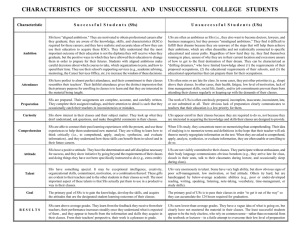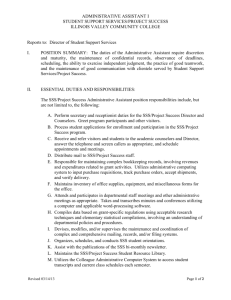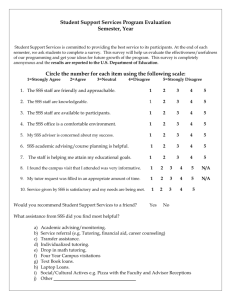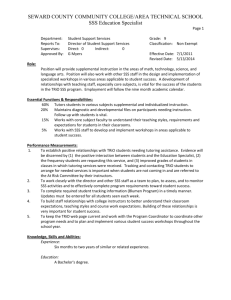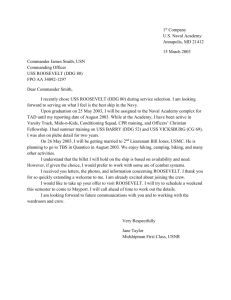Are You a Successful Student? Do you want to be one?
advertisement
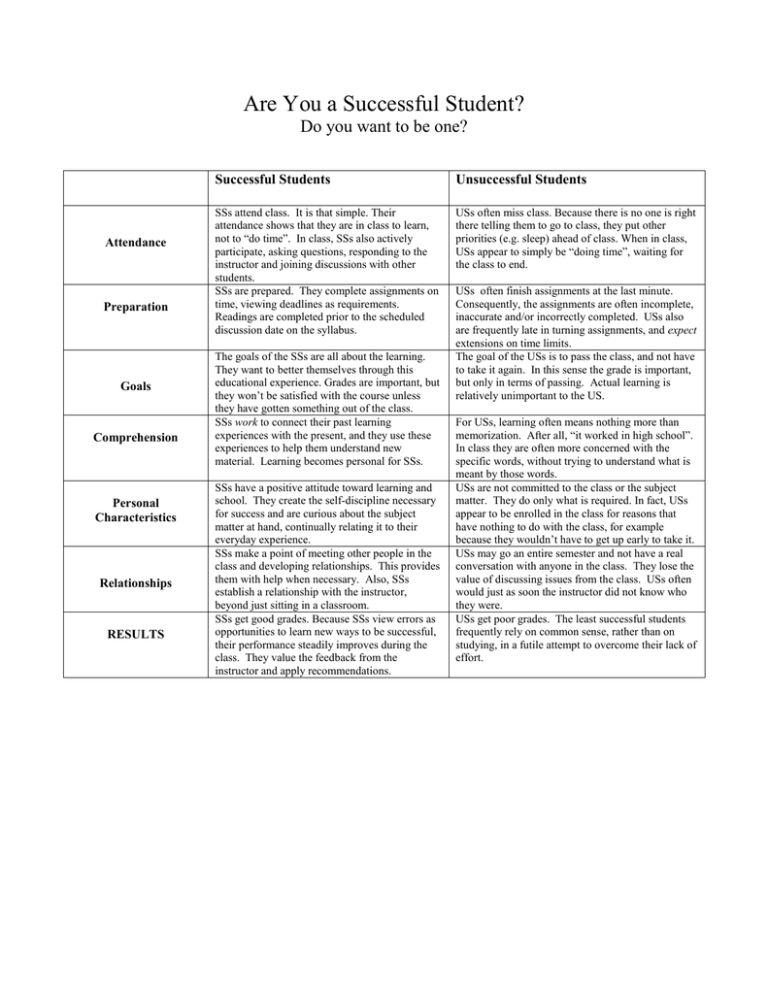
Are You a Successful Student? Do you want to be one? Attendance Preparation Goals Comprehension Personal Characteristics Relationships RESULTS Successful Students Unsuccessful Students SSs attend class. It is that simple. Their attendance shows that they are in class to learn, not to “do time”. In class, SSs also actively participate, asking questions, responding to the instructor and joining discussions with other students. SSs are prepared. They complete assignments on time, viewing deadlines as requirements. Readings are completed prior to the scheduled discussion date on the syllabus. USs often miss class. Because there is no one is right there telling them to go to class, they put other priorities (e.g. sleep) ahead of class. When in class, USs appear to simply be “doing time”, waiting for the class to end. The goals of the SSs are all about the learning. They want to better themselves through this educational experience. Grades are important, but they won’t be satisfied with the course unless they have gotten something out of the class. SSs work to connect their past learning experiences with the present, and they use these experiences to help them understand new material. Learning becomes personal for SSs. SSs have a positive attitude toward learning and school. They create the self-discipline necessary for success and are curious about the subject matter at hand, continually relating it to their everyday experience. SSs make a point of meeting other people in the class and developing relationships. This provides them with help when necessary. Also, SSs establish a relationship with the instructor, beyond just sitting in a classroom. SSs get good grades. Because SSs view errors as opportunities to learn new ways to be successful, their performance steadily improves during the class. They value the feedback from the instructor and apply recommendations. USs often finish assignments at the last minute. Consequently, the assignments are often incomplete, inaccurate and/or incorrectly completed. USs also are frequently late in turning assignments, and expect extensions on time limits. The goal of the USs is to pass the class, and not have to take it again. In this sense the grade is important, but only in terms of passing. Actual learning is relatively unimportant to the US. For USs, learning often means nothing more than memorization. After all, “it worked in high school”. In class they are often more concerned with the specific words, without trying to understand what is meant by those words. USs are not committed to the class or the subject matter. They do only what is required. In fact, USs appear to be enrolled in the class for reasons that have nothing to do with the class, for example because they wouldn’t have to get up early to take it. USs may go an entire semester and not have a real conversation with anyone in the class. They lose the value of discussing issues from the class. USs often would just as soon the instructor did not know who they were. USs get poor grades. The least successful students frequently rely on common sense, rather than on studying, in a futile attempt to overcome their lack of effort.
